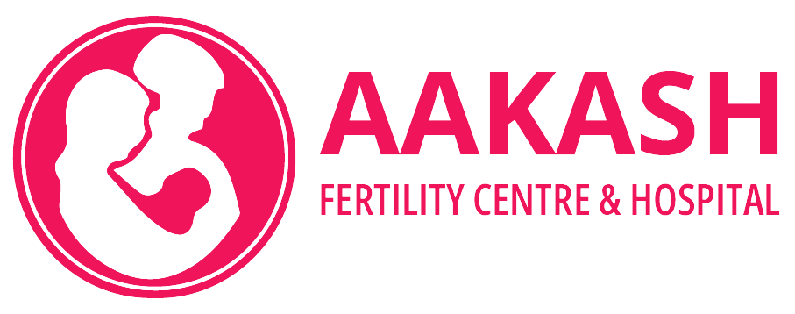Polycystic Ovary Syndrome (PCOS) is a prevalent reproductive endocrine disorder, affecting approximately 5% of women. In PCOS, the ovaries become enlarged and contain multiple small cysts, representing immature eggs that fail to develop. These ovaries also produce excessive androgens, contributing to symptoms like acne and hirsutism. Additionally, PCOS often disrupts the balance of pituitary hormones (FSH and LH), impacting ovulation. To schedule a consultation at Aakash Fertility Centre in Chennai with Dr. Jeyarani Kamaraj, a Best IVF specialist in Chennai, who provides expert guidance to enhance the prospects of success in addressing infertility related to PCOS, book your appointment today.
What are the signs of PCOS?
- Irregular and infrequent menstrual cycles with heavy or scanty flow.
- Acne.
- Excessive hair growth (hirsutism).
- Weight gain, which exacerbates these symptoms.
- Elevated levels of AMH (Anti-Müllerian Hormone) and potential alterations in the FSH and LH ratio.
If you have any of the above symptoms, book your appointment today at Aakash Fertility Centre in Chennai.
What are the Causes of PCOS?
Hormonal Imbalance: PCOS is primarily driven by an imbalance in reproductive hormones. Elevated levels of androgens (male hormones), such as testosterone, play a central role in the condition. This hormonal imbalance disrupts the normal ovarian function and leads to the characteristic cysts on the ovaries.
Insulin Resistance: Many women with PCOS also have insulin resistance, which means their cells do not respond effectively to insulin. In response, the pancreas produces more insulin, which can further exacerbate the hormonal imbalances in the body.
Genetics: There is a strong genetic component to PCOS. If you have a family member with PCOS, you may be at a higher risk of developing the condition. Specific genetic factors are being studied to better understand their role.
Inflammation: Chronic low-grade inflammation is associated with PCOS and can contribute to insulin resistance and other symptoms. Inflammation can be both a cause and a consequence of PCOS.
Environmental Factors: Certain environmental factors, such as exposure to endocrine-disrupting chemicals, may contribute to the development or exacerbation of PCOS.
Lifestyle Factors: Sedentary lifestyle and poor dietary choices, leading to weight gain and obesity, can worsen the symptoms of PCOS. Weight gain can further contribute to insulin resistance and hormonal imbalances.
PCOS and Infertility:
Infertility in Polycystic Ovary Syndrome (PCOS) is primarily attributed to anovulation, where the ovaries fail to release mature eggs, disrupting the normal menstrual cycle. PCOS patients often exhibit elevated androgens and hormonal imbalances, impeding the growth of ovarian follicles and ovulation. The altered balance of pituitary hormones, such as follicle-stimulating hormone (FSH) and luteinizing hormone (LH), further complicates ovulation. Additionally, the presence of multiple small cysts on the ovaries signifies immature follicles that do not develop into mature eggs. Luteal phase defects and endometrial abnormalities can compromise the chances of successful embryo implantation. Elevated LH levels and the potential risk of ovarian hyperstimulation syndrome during fertility treatments add to the complexity of PCOS-related infertility, emphasizing the need for personalized and comprehensive approaches to address this condition from our IVF expert Dr. Jeyarani Kamaraj, top gynecologist in Chennai.
What are the treatment options for PCOS and the way to pregnancy?
Weight Loss: Weight reduction is crucial in managing PCOS-associated infertility. Even a modest 5-7% weight loss can lead to spontaneous ovulation.
Ovulation Induction: Medications like clomiphene citrate, letrozole, FSH, and HMG are used to stimulate ovulation. The dosage is adjusted through follicular monitoring, and this approach can facilitate timed intercourse.
Adjuvant Medications: In cases where ovaries do not respond to standard ovulation-inducing drugs, and low-dose steroids may be considered.
Surgical Management: When ovulation induction drugs prove ineffective, laparoscopy and ovarian drilling may be an option, especially in lean PCOS or cases with high LH levels.
In Vitro Fertilization (IVF): If conception remains elusive after several cycles of ovulation induction and intrauterine insemination (IUI), IVF may be recommended. However, women with PCOS are at higher risk for ovarian hyperstimulation syndrome during IVF. To mitigate this risk, a GnRH agonist trigger is preferred over HCG trigger. The “freeze all embryos” approach, followed by frozen embryo transfer, is often the most successful strategy.
Tailoring treatment choices to an individual’s unique needs can increase the likelihood of pregnancy for women with PCOS. Dr. Jeyarani Kamaraj, a leading gynecologist and IVF specialist in India, provides specialized guidance, further enhancing the potential for a successful outcome.
– Aakash Fertility Centre & Hospital

